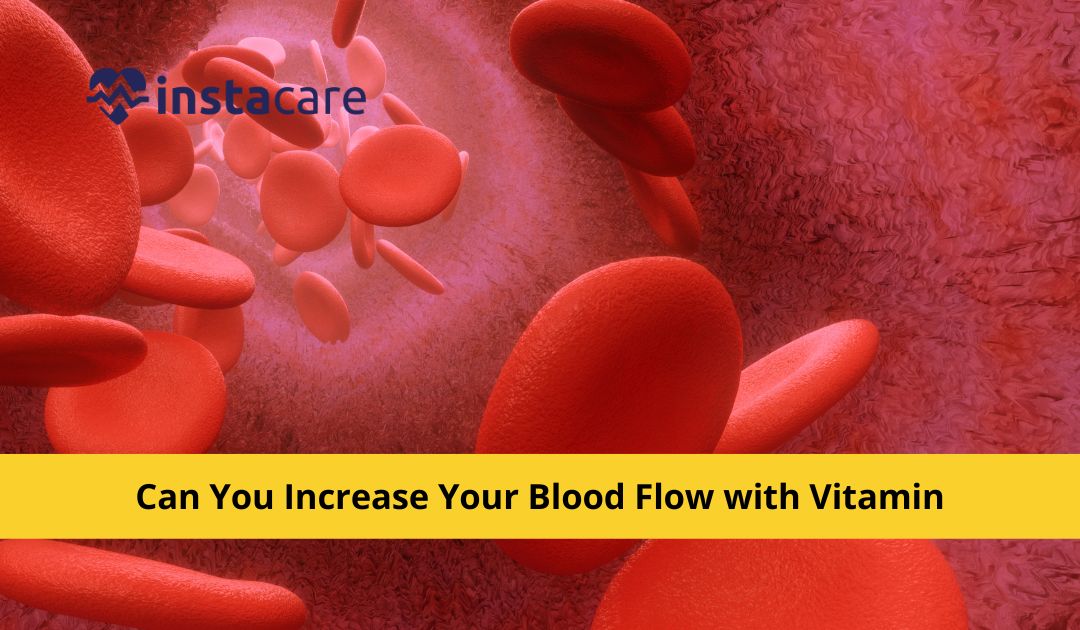Blood flow is a vital component of
overall health, as it ensures that oxygen and nutrients are efficiently
delivered to every part of the body. Poor blood circulation can lead to a range
of health issues. In recent years, there has been growing interest in the
potential role of vitamins in improving blood flow. In this comprehensive
guide, we will explore various vitamins and their impact on blood circulation,
examining both the scientific evidence and practical considerations.
Understanding Blood Flow
Before delving into the role of
vitamins, it's crucial to understand the basics of blood flow. Blood is pumped
by the heart through a network of blood vessels, including arteries and veins.
Arteries carry oxygenated blood away from the heart to the body's tissues,
while veins return deoxygenated blood to the heart. Healthy blood flow is
essential for transporting oxygen, nutrients, and hormones, as well as removing
waste products from cells.
Key Vitamins For Blood Flow
Several vitamins have been associated with promoting healthy blood circulation. Here are some of the most notable ones:
Vitamin C: This antioxidant vitamin is crucial for
the health of blood vessels. It helps maintain the integrity of blood vessel
walls and supports the production of collagen, which is essential for blood
vessel structure.
Vitamin D: While primarily known for its role in
bone health, vitamin D may also influence cardiovascular health. Research
suggests that vitamin D deficiency is linked to an increased risk of heart
disease and impaired blood vessel function.
Vitamin E: Another
antioxidant, vitamin E, may help dilate blood vessels and improve blood flow.
It can also reduce oxidative stress, which can damage blood vessels.
Vitamin K: Vitamin K
plays a role in blood clotting and may contribute to maintaining vascular
health. It helps prevent calcification of blood vessels, which can impede blood
flow.
Vitamin
B3 (Niacin): Niacin can boost levels of high-density lipoprotein (HDL)
cholesterol, which is associated with improved blood vessel function. It can
also help relax blood vessels, promoting better circulation
Scientific Evidence
While the potential benefits of these vitamins on blood
flow are promising, it's essential to consider the scientific evidence
supporting their role:
Vitamin C: Research suggests that vitamin C
may help improve endothelial function, which is essential for blood vessel
health. However, the effects may vary among individuals, and high doses of
vitamin C do not necessarily lead to greater benefits.
Vitamin D: There is some evidence that vitamin D
deficiency is associated with impaired blood vessel function and increased
cardiovascular risk. However, more research is needed to establish a direct
causal link between vitamin D supplementation and improved blood flow.
Vitamin E: Studies have shown that vitamin E may
have a modest effect on blood vessel dilation and overall circulation.
Nevertheless, its efficacy can be influenced by various factors, including
dosage and individual response.
Vitamin K: Vitamin K's
role in maintaining vascular health by preventing calcification is
well-established. However, more research is needed to determine its impact on
blood flow in different populations.
Vitamin B3 (Niacin): Niacin has
demonstrated the ability to improve blood lipid profiles and promote
vasodilation. It is often used as a supplement to manage cardiovascular risk
factors.
View More: 14 Health And Beauty Benefits Of Grape Seed Oil
Practical Considerations
Before incorporating vitamins into your routine to
enhance blood flow, consider the following practical aspects:
Consult a Healthcare Professional: Always
consult with a healthcare provider before starting any vitamin supplementation
regimen. They can assess your specific health needs and recommend appropriate
dosages.
Balanced Diet: While vitamins can play a role in blood
flow, they should not be a substitute for a balanced diet rich in essential
nutrients. Whole foods like fruits, vegetables, and lean proteins should be the
foundation of your nutrition.
Individual Variability: The
impact of vitamins on blood flow can vary from person to person. What works for
one individual may not produce the same results for another.
Potential Benefits Of Vitamins For Blood Flow
The potential benefits of using vitamins to improve blood
flow are multifaceted:
Reduced Risk of Cardiovascular Disease: Adequate
vitamin intake may help reduce the risk of cardiovascular diseases by
maintaining healthy blood vessels and preventing the buildup of arterial
plaques.
Enhanced Athletic Performance: Improved
blood flow can enhance oxygen and nutrient delivery to muscles during exercise,
potentially improving endurance and performance.
Wound Healing: Vitamins that
support blood circulation can aid in wound healing by ensuring that oxygen and
nutrients reach damaged tissues more efficiently.
Limitations And Considerations
While vitamins can play a role in improving blood flow,
it's important to consider their limitations and potential risks:
Individual Variability: The
effectiveness of vitamins in promoting blood flow may vary among individuals
based on their overall health, genetics, and dietary habits.
Balance Is Key: Excessive
vitamin intake can have adverse effects. It's important to maintain a balanced
diet and avoid over-supplementation, as some vitamins can be harmful in excess.
Comprehensive Approach: Vitamins
alone may not be a panacea for blood flow issues. Lifestyle factors, such as
diet, exercise, and stress management, also play a significant role in
circulation.
Conclusion
Vitamins can indeed contribute to improved blood
flow by supporting blood vessel health, reducing oxidative stress, and
regulating clotting. Ultimately, a comprehensive approach to circulatory health
will yield the best results
Please book an appointment with the Best Nutritionist in Lahore, Karachi, Islamabad, and all major cities of Pakistan through InstaCare, or call our helpline at 03171777509 to find a verified doctor for your disease.


